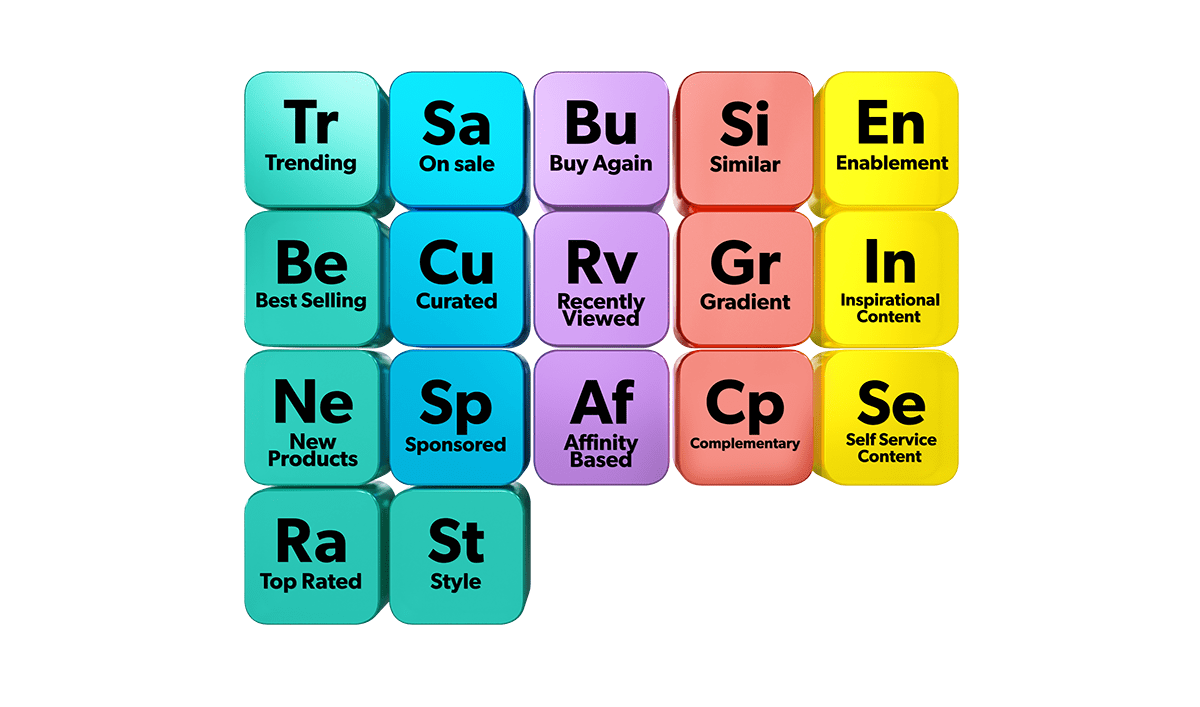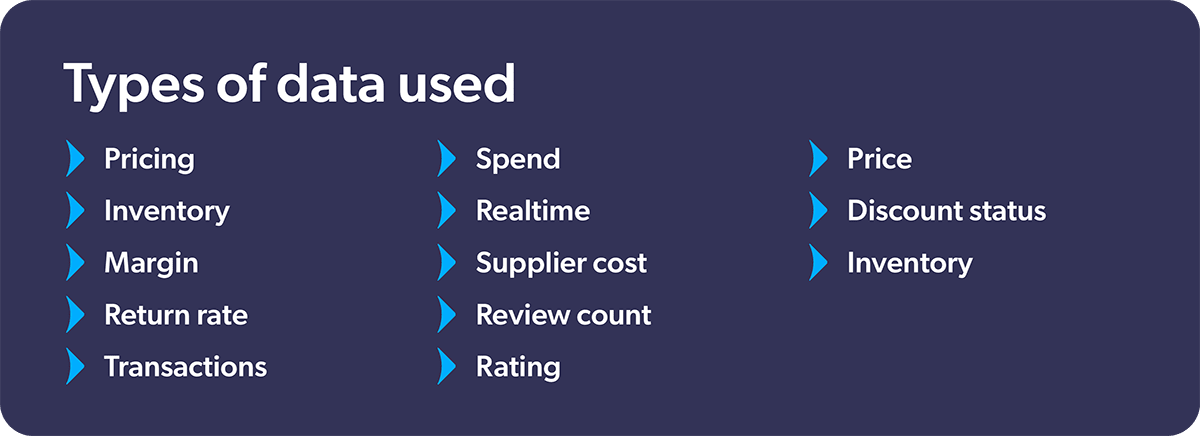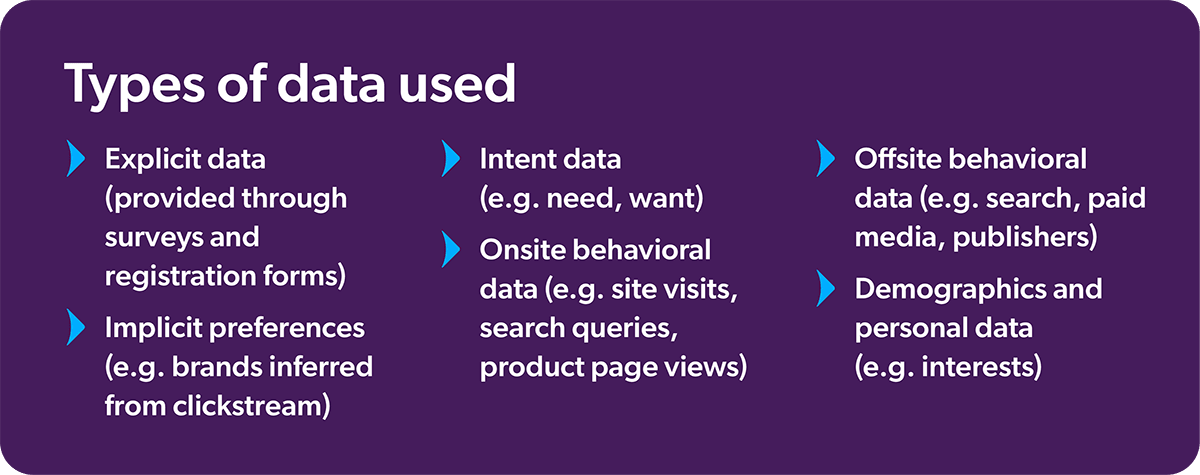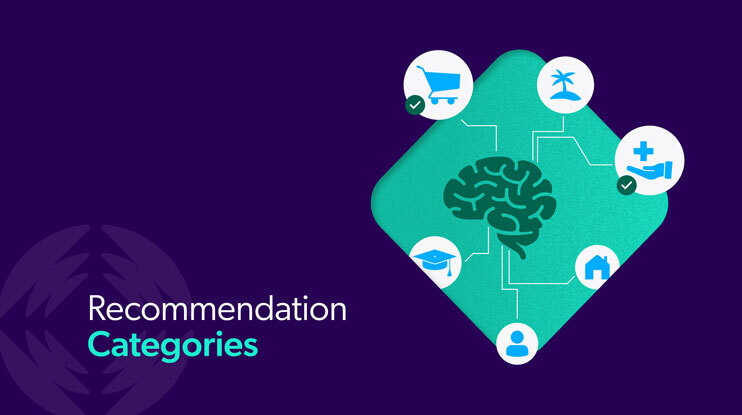In brick-and-mortar stores, shoppers seek out knowledgeable sales associates for helpful, relevant suggestions. The catch is, of course, having a knowledgeable sales associate. A poor one will turn shoppers off, while a good one will lock them in.
To mirror that same know-how online, brands and retailers have turned to recommender systems that offer up recommendations like “trending in your area” carousels to “shop the look” widgets. Or from “items on discount” boxes to suggestions for relevant how-to-guides or educational videos.
But, just like in store, recommendations need to be “smart.”

Smart ecommerce recommendation engines resort to ecommerce relevance alchemy to offer shoppers a world-class customer experience at all stages of their journeys and provide businesses with profitable growth.
Be the Relevance Alchemist
Recommender systems must use advanced machine learning, a solid data layer foundation and advanced business rules to select, orchestrate and combine elements from the Ecommerce Recommendation table.

Like the elements on a periodic table, the recommender system comprises atoms and elements with different values and masses. Each one holds a unique value, but combined can lead to the curation of pure alchemy. An alchemist transforms things for the better, but a Relevance Alchemist synthesizes ways for you to be smarter than your personas and assumptions.
The Recommendation Periodic Table is one that studies the universal cure for relevancy-attacking diseases, and discovers the method to indefinitely prolonging your customer’s life and attention.
Each element has its own separate set of data, no two elements are the same. If you can master the 17 different recommendation elements and their five categories in your recommendation engine, you’ll be on your way to conquer relevance — and ahead of the rest.
Explosive Combination: 5 Recommending Categories
These are the five recommendation categories for ecommerce, and they are must-haves in the best search and recommendation engines. Elements in the same column as one another are known as groups, and share similar properties. We’ll walk through not only product, but content recommendations to implement for true alchemy.
1. Context-Based Recommendations
What’s trending, what’s relevant and what’s new. That’s what buyers want. In this recommendation group you can find out elements to pay attention to ranging from the best sellers to what fits people’s behavior. Think about the Top 10 Most Watched in your country section on Netflix. If something’s trending in that #1 spot, it sparks a curiosity – what’s so good about that show? Maybe I should watch and find out.
With little information it’s still possible to match your shoppers needs – you just have to recommend using the right data, and trends and new products are the perfect sparkers of curiosity. This group will skyrocket your clickthrough and conversion rates.

2. Business-Based Recommendations
It’s not all about what your customers are looking for. Sometimes, they don’t know what they’re looking for, which is why they seek the guidance of a sales associate. This second group of Business-Based Recommendations still prioritizes you as a seller. The goal is to suggest and sell products based on business priorities. Suggestions should be geared towards profits, the right way to discount, but also clearing expiring inventory.
Let’s say your customer sees a product on sale right before they checkout. They’ll first experience joy, at a discount price, then they’ll ask themselves if they really need it. If it’s a random product, it’s more likely that they’ll answer no. But curated product recommendations There’s a battle going But imagine if the product

3. Profile-Based Recommendations
Personalization is king. Don’t make the mistake of recommending to your customers what you think they want, or what you want to sell. The world is changing, and we’re saying goodbye to the personas your marketing team has created. What’s the point when AI can now just show each customer what they’re really after?
Smart AI takes it a step beyond that, and shows them products that they didn’t know they wanted. Data is smarter than ever. It’s about combining your implicit and explicit data to make your recommendations smart and personal.

4. Product-Based Recommendations
It’s all about crafting a powerful shopping experience. The elements in this group care about suggesting products related to what the shopper’s already looking for. Similar, gradient, or complementary elements
If you’re searching for ski gear, it’s winter and you’re probably going skiing. Ski gloves, goggles, new ski or snowboards are probably on the customer’s radar too. Or think of it like you’re at a physical store, and you ask the sales associate to show you “more colors” or a “cheaper version”. Your customers are going to have the same question when they’re shopping online too, it’s up to you to have a recommender system that capitalizes on that.

5. Content-Based Recommendations
This last group is all about content, content, content. There’s so much more laying around on your website besides the product. The aim is to drive them to synthesized data, articles, product catalogs and direct traffic in all directions. The aim of this is to inspire buyers, support customers and transform their buyer experience on your website.

Unearth Gold
Each element serves a purpose, but combined – that’s where the real magic happens. If your search engine perfects all five categories, you will transform your ecommerce service and your customer journey. The secret lies in combining these elements in the way that best fits your purpose and once you achieve that — you’ll find gold.There is magic in your ecommerce system. You and a strong recommender system just have to be the magicians of it.
The Recommendation Periodic Table is the first ebook in the Ecommerce Alchemy series. The Recommendation Periodic Table is the formula for success in any good search engine. Learn more about the elements in the five groups, and the data they require in the ebook: Introducing eCommerce Alchemy: The Recommendation Periodic Table.


